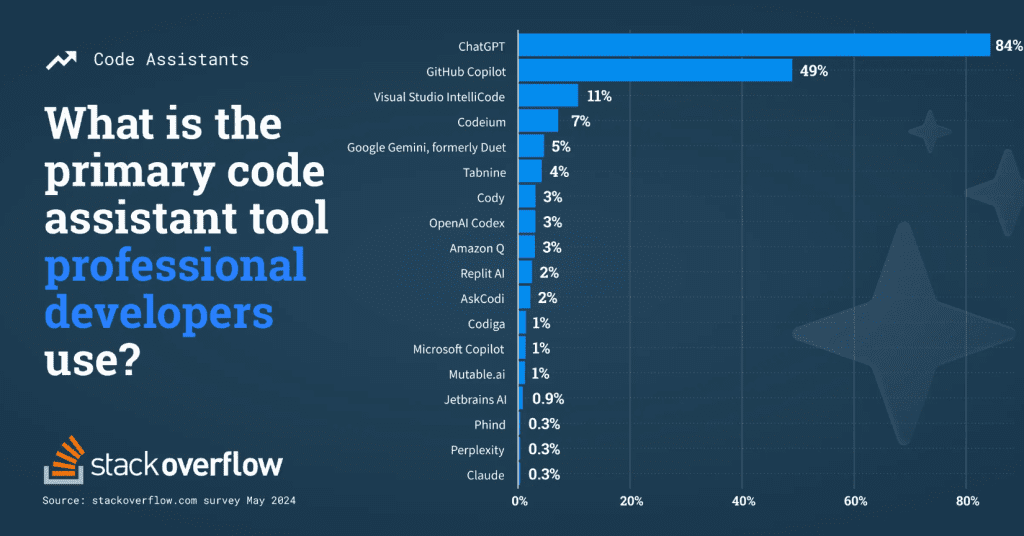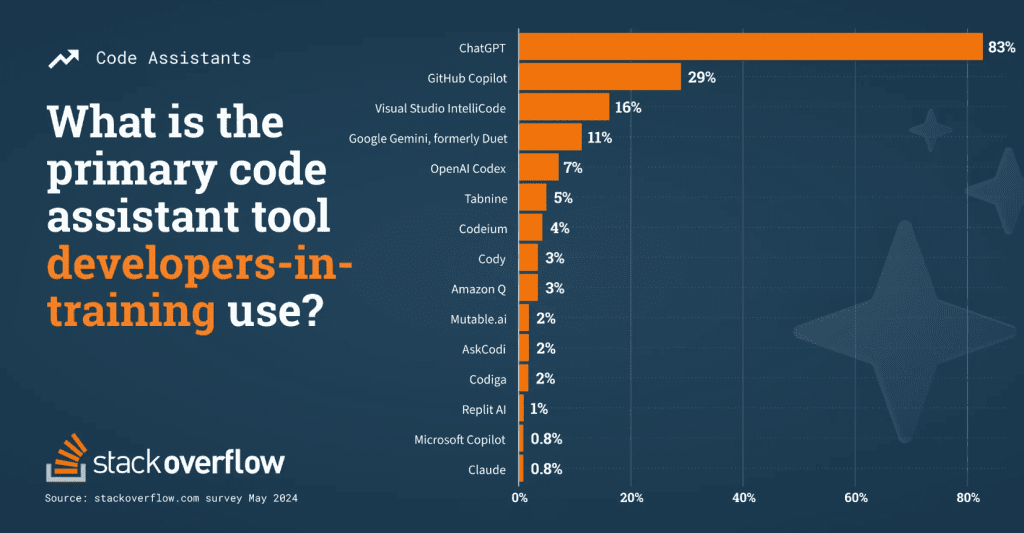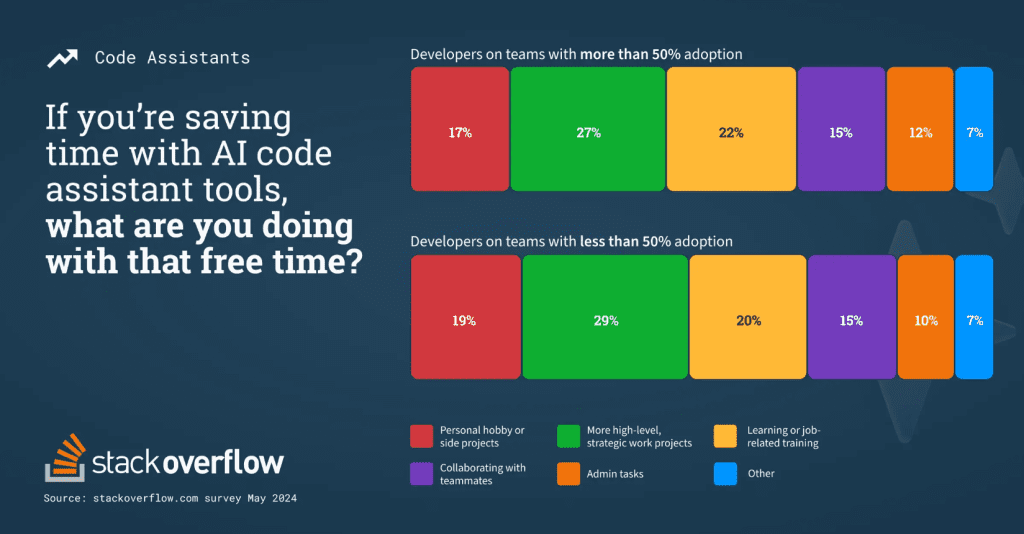- Stack Overflow’s survey explores usage and perceptions of AI among developers.
- 76% of respondents use or plan to use AI code assistants, with varying adoption rates across roles.
- ChatGPT and GitHub Copilot dominate the space, but concerns persist regarding accuracy and contextual understanding.
- Easy-to-use tools are favored by users, contributing to a positive work environment.
- Adoption hurdles include complex workflows and a lack of organizational AI policies.
- Developers on teams with lower adoption rates are leveraging AI tools for creative pursuits.
Main AI News:
In the ever-evolving landscape of technology, the buzz around Artificial Intelligence (AI) has been incessant, often leaving professionals wondering: does the hype match the reality? Stack Overflow, a haven for developers seeking answers, delved into this query through their recent Code Assistant Pulse Survey, revealing intriguing insights into the usage and perceptions of AI among developers.

Source: Stack Exchange Inc.
With responses from over 1,700 individuals, the survey aimed to unravel the adoption, satisfaction, and challenges associated with code assistant tools. What emerged was a nuanced picture of how AI is reshaping the developer experience.
The findings shed light on the prevalence of code assistant tools, with a staggering 76% of respondents either currently using or planning to use AI code assistants. Notably, certain roles, such as academic researchers and AI developers, exhibited higher adoption rates compared to others like data analysts and desktop developers. This discrepancy underscores the tailored nature of these tools, with effectiveness varying across different domains.




Source: Stack Exchange Inc.
While tools like ChatGPT and GitHub Copilot dominate the space, concerns linger regarding accuracy and contextual understanding. Developers voiced frustrations with the inability of code assistants to grasp complex nuances or obscure programming paradigms, highlighting areas for improvement in AI algorithms.
However, despite these challenges, the allure of AI remains strong. Tools that are perceived as easy to use and satisfying garner high praise from users, suggesting that beyond mere productivity gains, AI aids in fostering a positive work environment. Microsoft’s assertion that AI empowers users to focus on strategic tasks further bolsters this notion, hinting at the transformative potential of these tools.




Source: Stack Exchange Inc.
Yet, the journey towards widespread adoption is not without hurdles. Complex workflows and a lack of trust inhibit integration, particularly in teams with lower adoption rates. Moreover, the absence of clear AI policies within organizations poses a barrier to implementation, signaling a need for robust frameworks to facilitate seamless integration.
Nevertheless, amidst these challenges lies a silver lining. Developers on teams with lower adoption rates are leveraging the newfound time for creative pursuits, signaling a paradigm shift in the developer experience. As organizations navigate this transition, the focus is shifting from short-term productivity gains to long-term investments in enriching work experiences.




Source: Stack Exchange Inc.
Conclusion:
The insights from Stack Overflow’s Code Assistant Pulse Survey reveal a growing interest in AI among developers, with a majority already using or considering AI code assistants. While challenges remain in terms of accuracy and integration, the survey highlights a shift towards leveraging AI for enhancing productivity and fostering a conducive work environment. Organizations must address adoption hurdles and establish clear AI policies to fully harness the potential of these tools and drive innovation in the market.

